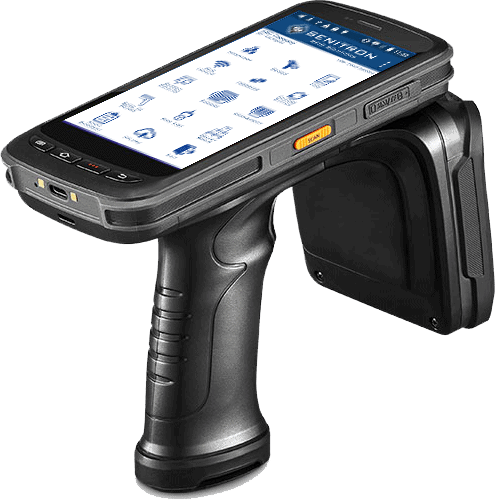Radio Frequency Identification or RFID is a cutting-edge technology that enables one to detect objects without feasibly touching them. The technology has non-contact reading as well as the creation of data inside the memory. The data stored inside is utilized to detect the object and explain the manufactured unit's characteristic traits, such as type, date, and price.
One of the biggest pros of this technology is that it operates through radio waves. It can also work efficiently when it does not even get a distinct line of sight. Common examples that can be seen in the market are electronic tags in passive form and remote-control car keys in active mode.
Let’s check out some commonly asked questions about RFID technology and the use of RFID inventory solutions in different industries. Hope the discussion will be quite helpful for the readers, and they will explore more useful facts about RFID and its use in the industry.
- What are Smart Tags?
Smart tags could be defined as labels that computers can read. The barcodes introduced to the market about twenty years ago in several retail outlets are also smart tags.
A smart tag contains RFID electronics such as a chip, transmit circuit, and aluminium antenna loop. All of them are fixed inside a plastic foil together, along with an adhesive paper that shows a glimpse of the information the chip stores.
- What are the Benefits of Smart Tags?
The advantage of a smart tag is that it allows objects to be identified and found in the future. More specifically, the people travelling by air do not want any suitcase but their own suitcase at the journey's end. The smart tags used for handling luggage at airports offer reliable and fast identification.
- What is the Lifespan of RFID Tag?
The answer to this question is uncertain, and “it depends.” Very little in RFID is dried and cut. We need to consider whether we are talking about active or passive RFID tags. When it comes to passive RFID tags will label much longer as compared to active RFID tags. It is because the active RFID tag relies on a battery and the passive RFID tags do not.
- How Do They Function?
The experts offering durable RFID warehouse management systems said the scanner or reader transmits radio signals so that the chip can register them. If the signal catches the antenna of the smart tag, the chip starts functioning. The chip retrieves information only after checking the signal is of the correct addressee and the reader is authorized.
- Does RFID Interfere with Other Technical Devices?
The electronic labels having a passive RFID system or no power supply of their own do not interfere with other devices because the radio signals generated are excessively weak. Active RFIDs have a power supply of their own, but they transmit signals on different frequencies, so they also do not cause any sort of obstruction.
- Which Industries are Likely to Implement RFID Technology Over Time?
All the industries that wish to detect and manage millions of objects within a short period or record their positions during manufacturing and logistics procedures are likely to implement RFID technology. It alleviates expenditures for automobiles and textiles industries that produce goods in huge amounts at different locations around the globe.
RFID inventory system cost is also very low compared to other tracking systems currently used across the industries. The aforementioned discussion will certainly help the people planning on using RFID solutions in their preferred industries.
- How Reliable is RFID?
For businesses dealing with high-end technology that is sometimes unreliable and quite sensitive, RFID has emerged as one of the most stable and dependable options, like barcodes. Until the tags are placed in an easy-to-read place where they are free from any damage from outside elements like human interference, bumps or water, the RFID tags will last a long time.
The information is precisely embedded into the chip for RFID inventory management solutions or any other purpose. Also, you don’t have to worry about using a batter or other power source to keep the tags readable.
Though there might be some downside, one can certainly suggest that RFID is the most reliable option compared to other alternatives available in the industry. Additionally, with technology getting better with each passing day, it will only get better. Interestingly, early forms of RFID date back to World War 2.
Now that they know everything about the said technology, it will be quite easy to reap the benefits. Always choose an authentic provider or all the money spent will go down the drain. Never be in a hurry to choose the right service provider. Please share your thoughts or queries regarding the discussion below in the comment section.
